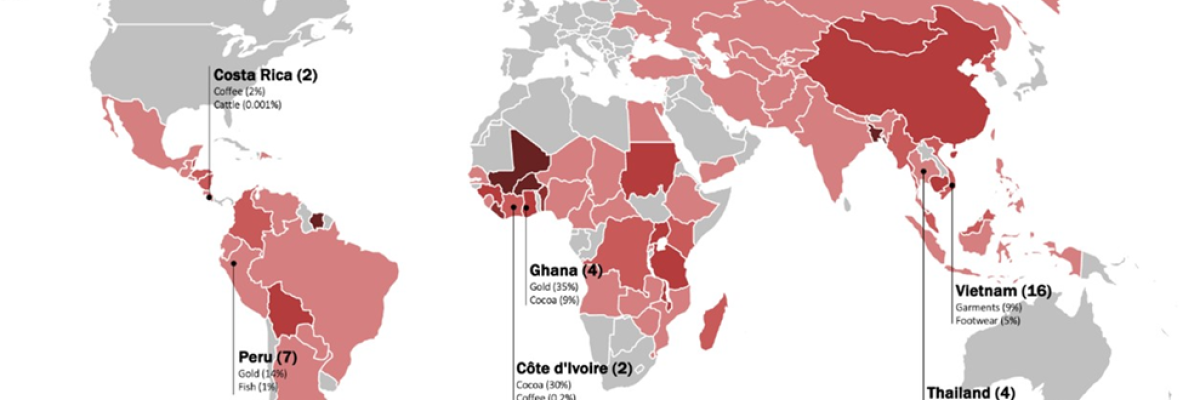
Project overview - Frauke Steglich
Effects of supply chain regulation on producers (countries) in the Global South

Project overview
Effects of supply chain regulation on producers (countries) in the Global South - Focus of GIGA Hamburg
1. To what extent are countries in the Global South exposed to due diligence (DD) regulations in the EU?
EU human rights and environmental due diligence (HRDD) rules may unintentionally marginalize vulnerable economies in the Global South. To understand these risks, it’s important to systematically assess how countries are exposed through their roles in global value chains (GVCs). Using country-industry data combined with input-output analysis allows us to identify and measure these risks, providing a basis for more targeted and fair sustainability policies.
Requirement 1: Granular data on human rights risks across countries & products
- List of imported goods classified as `risky', the country of origin of these goods, the type of risk and the year it was flagged
- Covers child labour, forced labour, and forced child labour
- Share of risky exports in total exports at industry level

Requirement 2: Ability to map these data onto supply-chain linkages
- Novel framework using Input-Output (IO) methodology
- 2021 EORA Input-Output data (189 countries and RoW, 26 industries)
- Value added generated in any country-industry associated with final demand in Europe
Goals:
- Indicator capturing human rights risk within specific GVCs
- Index measuring country/industry exposure to human rights risks
2. What are the impacts of the French DD law on trade with developing countries?
The hypothesis is that due diligence (DD) laws could harm developing countries if European firms terminate business relationships with so-called “high-risk” countries. However, there is currently no clear evidence that this is happening. To investigate this, we analyze annual firm-level customs data, comparing changes in import patterns of French firms affected by the DD law with those of similar firms before and after the law’s implementation.
3. What are the impacts of EU DD regulation on producers in the Global South?
The general plan is to assess the impacts of the EU due diligence (EUDD) regulation on producers in the Global South. This effort faces several challenges: much of the regulation is not yet fully effective or is only just coming into force, and collecting large-sample firm-level data is difficult, especially for companies linked to global value chains (GVCs). A possible approach is to focus on the effects of the EU regulation on deforestation-free products (EUDR), where data collection is more feasible through large-scale household or farm surveys. Deforestation risks can be directly observed, making this a suitable area for study. The plan includes conducting a case study on one crop, such as coffee or cocoa, in a country to be determined.
Why does this research matter?
Understanding how sustainability regulations affect producers in developing countries is crucial for ensuring these policies achieve their intended goals. While regulations like mandatory due diligence aim to improve environmental and human rights outcomes, their real-world effects remain poorly understood. In practice, such measures can unintentionally exclude small producers who lack the resources to comply or shift production to countries with weaker standards—a phenomenon known as leakage.
These unintended consequences risk undermining the very goals of sustainability policy. Making global value chains more sustainable is complex and cannot be achieved by regulation alone. There is a pressing need for better data, improved methods, and a deeper understanding of how these policies play out across diverse and fragmented supply networks.
This research helps fill key knowledge gaps by building on existing work in sustainable supply chains. It aims to support more effective, context-sensitive policymaking that genuinely improves outcomes for people and the environment.
Who do you collaborate with?
Jann Lay (GIGA)
